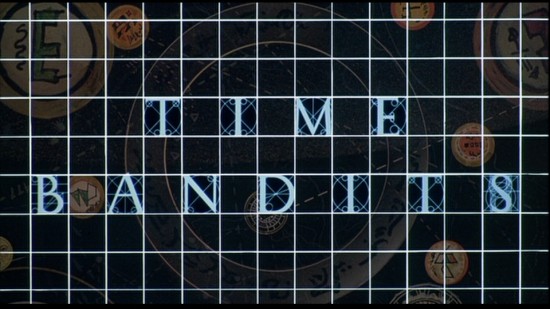
There's something imperfect and fun about this. It's hard to look at it not as a really, great, amazing film, exactly, but as someone with really amazing potential stretching and trying something new -- it feels a little like looking in a master's sketchbook and seeing the seeds planted, ideas that would blossom in later works. It's not a bad film as a standalone, but it's messy, and it's tough to pin down. It feels like it waffles between frivolous madcap Monty Python-light and something deeper, darker, more philosophically and morally rich, but I can't decide if the vacillations feel like the filmmaker is unsure himself, or if he's daring me to believe both simultaneously. It's both extremely thoughtful (Evil insisting he wasn't created; recurring themes of parenting from a child's perspective) and extremely thoughtless (Palin and Duvall's recurring characters; Evil's topsy-turvy pain-is-pleasure idiot thugs). I mean, it's episodic, sure but the tone shifts so wildly that in retrospect it's hard to place Sean Connery's scenes, John Cleese's scenes, Michael Palin's scenes, David Warner's scenes, and Ian Holm's scenes are all inside one film.
I will say this, though. Something that has stuck with me from the very first time I saw this as a child, and continues to haunt me and my own work today, is the very end, after the (let's face it) extremely easy, peril-free literal deus ex machina of God (the Supreme Being, anyway) stepping in and cleaning it all up. Yes, there's a weird/nice little exchange where He is indifferent to the dying and suffering caused just because he wanted to test his new creation (Evil) and that works on so many different levels (a child's disillusionment of his parents' infallibility; modern society's exuberant lust for gadgets and knickknacks at the expense of a great many things; philosophical and theological debates about the nature and being of both God and Goodness), and even if it's a cheap-shot scene it's a good one. But what really sticks with me isn't any of that; it's when he goes home and finds his house on fire. His parents and him barely escape, and then Mom and Dad, negligent and borderline loathsome as they were, brazenly touch the last scrap of Evil and explode. Kevin is left standing alone calling out for a Mom and Dad that aren't going to return -- and the credits roll. Aside from an odd scene of Agamemnon (Kevin's would-be adoptive father) winking at him as a modern-day fireman, there's not even a trace of hope in this ending. I mean, it's not like the fireman hangs around and says, "What's the matter, little boy?" He winks and drives away, and Kevin is alone in the world, eleven years old, standing outside his house, two dead parents and nothing else. That haunted me as a kid -- partially because in my kid brain I was trying to work out if somehow Kevin deserved this (I think instinctively we all expect characters, especially in kids films and comedies, to get only what they deserve at the end of the story), but partially because I couldn't think of many things more terrifying than the tetherlessness that we leave this story with. He didn't ask for any of it (in fact, my gut wonders if this even works as a traditional narrative; I'd have to watch it again to even determine what Kevin wants as a main goal throughout the story... he's a very reactive character, around for the ride and sometimes trying to help/sometimes trying to stop/sometimes trying to flee our title gang) and what he gets for all the trouble he goes through -- I suppose much like the theological knowledge that God allows Evil and suffering to exist only as a way of exercising something we call freewill -- is nothing but the helplessness of spiraling in a void.
I'm somewhat aquaphobic; I can't swim and my body freezes up beyond my control if I'm floating in a body of water without touching a wall or the floor. This film, when I stop and take it seriously (which I did very much as a child; and which I have a harder time doing as an adult, without caveats), leaves me with the same kind of free-floating existential panic. So I guess I'll concede that for all of its flaws, the parts of it that hit at all, hit very hard. And that's definitely something.

No comments:
Post a Comment